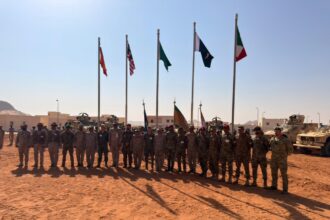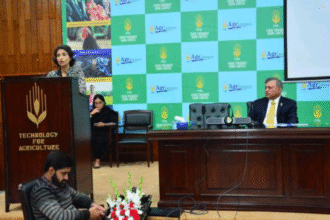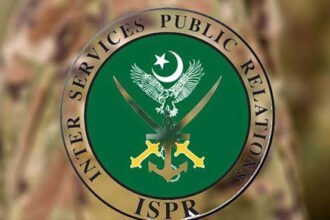
By: Abid Ali Khan
Senior Journalist and Columnist
The recent escalation between Iran and Israel is not merely a regional flare-up—it signifies the emergence of a new Cold War-like atmosphere on the global stage. This growing tension is not limited to military skirmishes or diplomatic hostility; it reflects a deeper ideological clash between Zionist imperialism, American strategic interests, and the Islamic resistance bloc. Within this shifting landscape, the role of Pakistan’s military leadership, particularly Field Marshal Syed Asim Munir, and the positioning of Muslim nations, has gained unprecedented importance.
The Failing Strategies of the U.S.-Israeli Axis
For decades, the core of U.S.-Israeli policy has been to curtail Iran’s nuclear and military capabilities. However, despite forty years of pressure, economic sanctions, and proxy warfare, Iran has emerged today as a sovereign, militarily resilient, and diplomatically assertive power. In recent weeks, Iran’s Islamic Revolutionary Guard Corps (IRGC) showcased its advanced military capabilities through direct strikes on Israeli targets. The unprecedented launch of over 500 missiles and drones breached Israel’s defense systems and sent a clear message to the world about Iran’s self-reliance in defense and precision-strike capacity.
Iran’s Ideological Narrative and the Palestinian Cause
Iran’s position is unambiguous: “Al-Quds is our red line.” The latest offensive against Israeli military bases, airfields, and command centers in the north was not merely retaliatory—it was a declaration of ideological war. These strikes served as retribution for the atrocities inflicted on Palestinians, delivering the message that the era of unchecked aggression is over. This response from Iran is not limited to a military dimension. It signals the assertion of a doctrine—that Islamic resistance cannot be subdued by sanctions, threats, or isolation. The unified support from Hezbollah, Hamas, Ansarullah (Yemen), and Iraqi resistance groups has further strengthened this bloc, projecting a cohesive and fortified front.
The Role of Field Marshal Syed Asim Munir
Pakistan’s military leadership, particularly Field Marshal Syed Asim Munir, is increasingly being recognized on the international stage for its strategic and unifying role in the Muslim world. His recent diplomatic engagements and efforts to forge unity among Muslim nations have earned respect, not just from Iran but also from pro-Palestinian circles across the region. There are emerging indications of a potential geo-strategic realignment involving Pakistan, Iran, and Turkey—centered on safeguarding Muslim interests and advancing the cause of Palestinian freedom. This axis, if strengthened, could play a transformative role in the regional balance of power.
Acknowledgment of U.S. Strategic Failures
American intelligence and diplomatic assessments have warned that any direct Israeli assault on Iran could ignite a prolonged, bloody, and unpredictable war. In anticipation, the U.S. has issued evacuation advisories for its citizens in Iran and Lebanon. This cautious approach underscores the failure of long-standing U.S. policies. The very state Washington aimed to isolate for decades is now a pivotal power, without whom peace in the region remains unattainable.
Conclusion: A Shift in the Global Balance of Power
The balance of power in the Middle East is undergoing a fundamental shift. Iran’s military strength, popular support, and unwavering ideological stance have challenged the traditional dominance of Israel. The once-considered “invincible” Israel is no longer immune to countermeasures. This transformation will not remain confined to the Middle East. It is poised to influence global alignments and redraw the contours of international diplomacy. If Pakistan, Iran, Turkey, and other Muslim nations take concrete steps toward genuine unity, a new Islamic bloc could emerge—one capable not only of confronting Israeli aggression but also of contributing to a more balanced and just world order.






